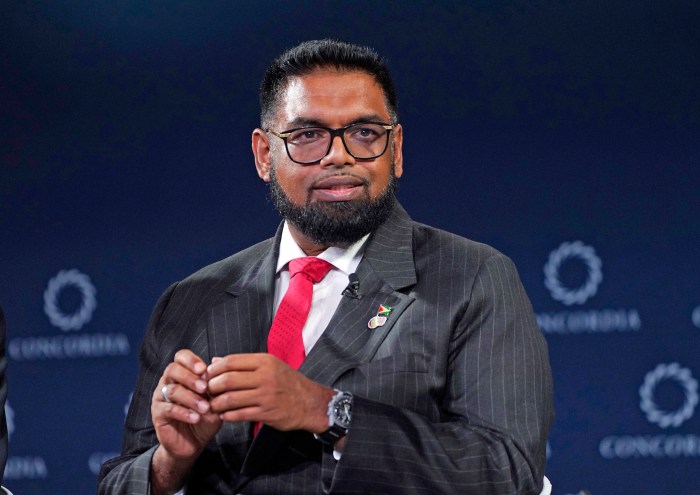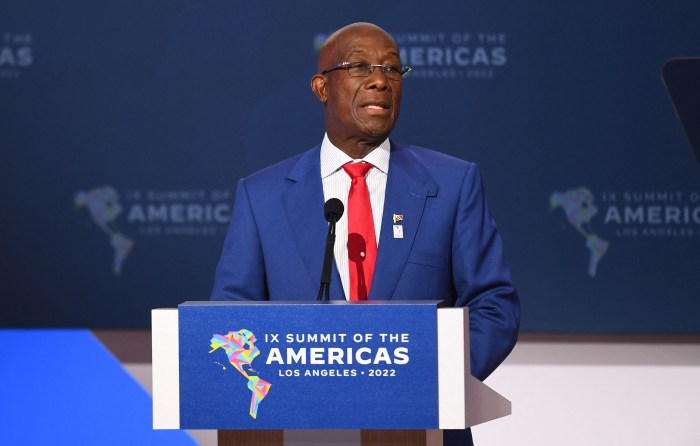General elections are scheduled to be held in Trinidad by the end of May next year but already opposition parties and anti government activists are reading much into several proposals made by government this week to reform electoral rules including term limits for prime ministers and run off contests in constituencies where a candidate fails to win 50 percent of the vote.
Prime Minister Kamla Persad Bissessar tabled the issues in parliament on Monday, raising pre-election levels to fever pitch and triggering speculation in the ranks of the opposition that the proposals are designed to perpetuate her first and maybe only term in office given widespread allegations of corruption and graft, the perception that her bloated cabinet is largely incompetent and the growing strength of the main opposition People’s National Movement (PNM).
The island’s first female head of government argued that once a leader serves two consecutive five-year terms that person should be automatically be made to demit office and make way for a new and elected candidate, expressing worry about leaders becoming political fossils in office.
Pointing to the U.S. system, she said that these leave office with grace and dignity but those in the British-influenced Westminster system remain sometimes until they are fossilized to the detriment of the country.
Many believed that she had had made more than a veiled reference to previous prime ministers Patrick Manning and Basdeo Panday — to Manning especially — who forced many to question his political sanity with some of the decisions he had taken in the latter part of his consecutive terms as head of government. Panday had faced similar criticisms.
“It is therefore proposed that the life of a parliament should ordinarily be fixed at five years. This will effectively fix the date for the holding of general elections. Gone would be the days of silly boasts and taunts about leaders ‘having the date in their back pocket. This provides clarity for the population at large and enhances the ability to participate in our democratic life, for all will know the electoral timetable,” she said.
But former attorney general Ramesh Maharaj said that the proposal demanding that candidates in various districts must win more than 50 percent of the votes to be elected to parliament is political wickedness.
He and former National Security Minister Austin Jack Warner are alleging that this particular proposal is designed to not only eliminate any smaller third force parties but to ensure and perpetuate racing voting in the island of 1.3 million people.
“This is not good governance and it is not good for the country because the measure is intended to divide the two major races in Trinidad and Tobago, to promote the division of the two major races.”
Warner on the other hand alleged that he was alerted to a cabinet discussion this week pushing for a straight fight between the Indo-dominated United National Congress, the dominant party in the coalition government and the Afro-supported PNM and eliminate his own Independent Liberal Party, which last year broke away from the government.
“The prime minister did that which is totally not in her manifesto. She did that to save herself for another term, hoping to wipe out all third parties like the ILP. More than that, she has followed the wishes to the hilt, the cabal’s wish has always been to Indianize and Hinduize the country and the feeling is that this decision will divide the country along tribal lines, African PNM, Indian UNC,” said Warner. This leaves virtually no room for a third force.






















